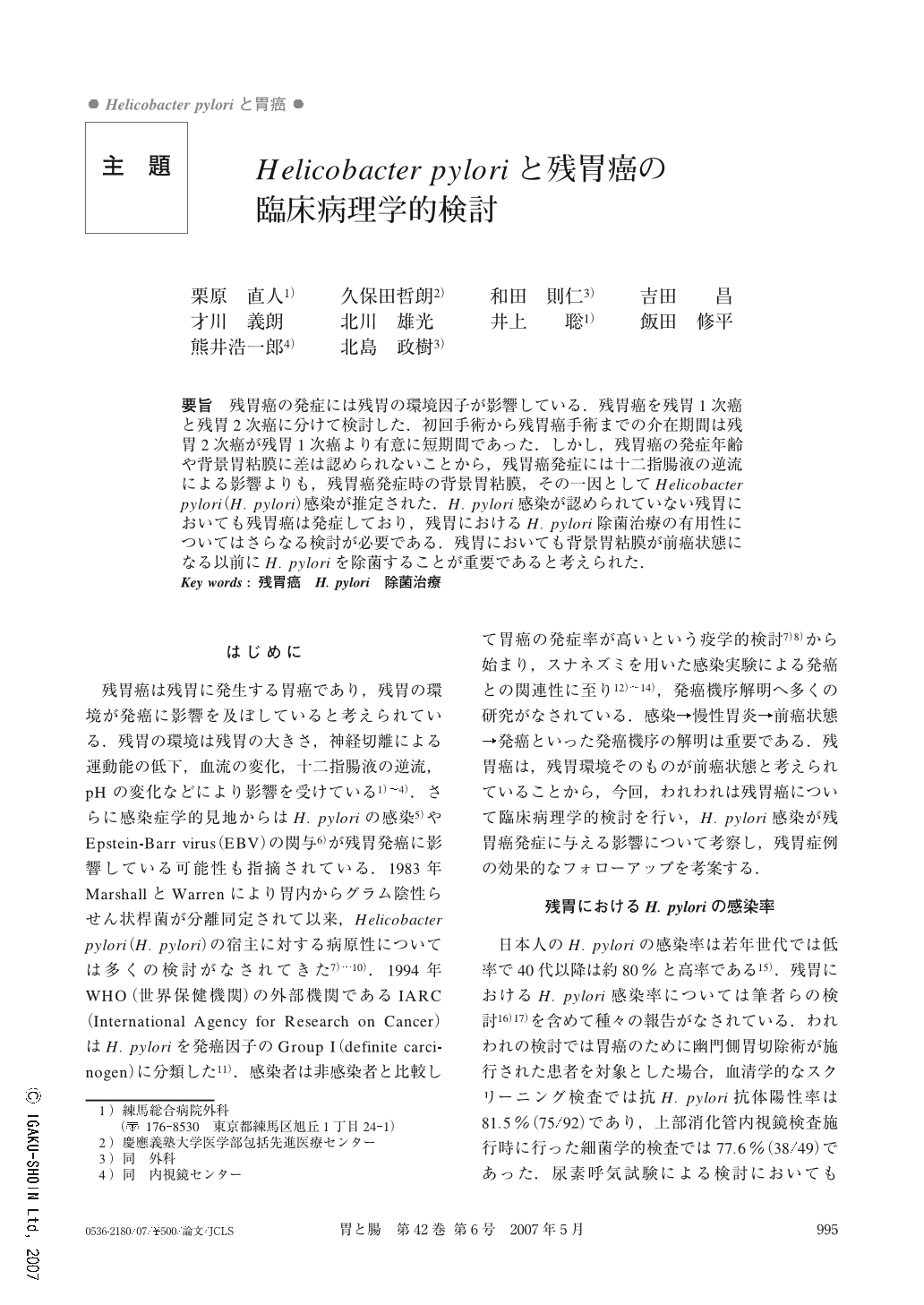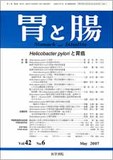Japanese
English
- 有料閲覧
- Abstract 文献概要
- 1ページ目 Look Inside
- 参考文献 Reference
- サイト内被引用 Cited by
要旨 残胃癌の発症には残胃の環境因子が影響している.残胃癌を残胃1次癌と残胃2次癌に分けて検討した.初回手術から残胃癌手術までの介在期間は残胃2次癌が残胃1次癌より有意に短期間であった.しかし,残胃癌の発症年齢や背景胃粘膜に差は認められないことから,残胃癌発症には十二指腸液の逆流による影響よりも,残胃癌発症時の背景胃粘膜,その一因としてHelicobacter pylori(H. pylori)感染が推定された.H. pylori感染が認められていない残胃においても残胃癌は発症しており,残胃におけるH. pylori除菌治療の有用性についてはさらなる検討が必要である.残胃においても背景胃粘膜が前癌状態になる以前にH. pyloriを除菌することが重要であると考えられた.
The etiology of remnant gastric cancer is affected by some environmental factors in the remnant stomach. In the present study, the clinico-patholigical features were evaluated in primary and secondary gastric cancer in remnant stomach. The interval between initial and secondary surgery for remnant gastric cancer was significantly shorter, when the initial lesion was malignant. However, no significant differences were found in age and pathological features evaluated by the Update Sydney system. Our present studies suggest that aging and chronic gastritis due to infection with Helicobacter pylori may be associated with gastric cancer in the remnant stomach. On the other hand, it seems to be significant that some cases of remnant gastric cancer were not infected with Helicobacter pylori. Therefore, further studies are required concerning the effect of cancer prevention in the remnant stomach using eradication therapy for Helicobacter pylori. The indication for the eradication therapy for Helicobacter pylori might be expanded to the remnant stomach after gastrectomy before pre-cancerous lesions such as intestinal metaplasia and atrophic gastritis become cancerous.

Copyright © 2007, Igaku-Shoin Ltd. All rights reserved.


